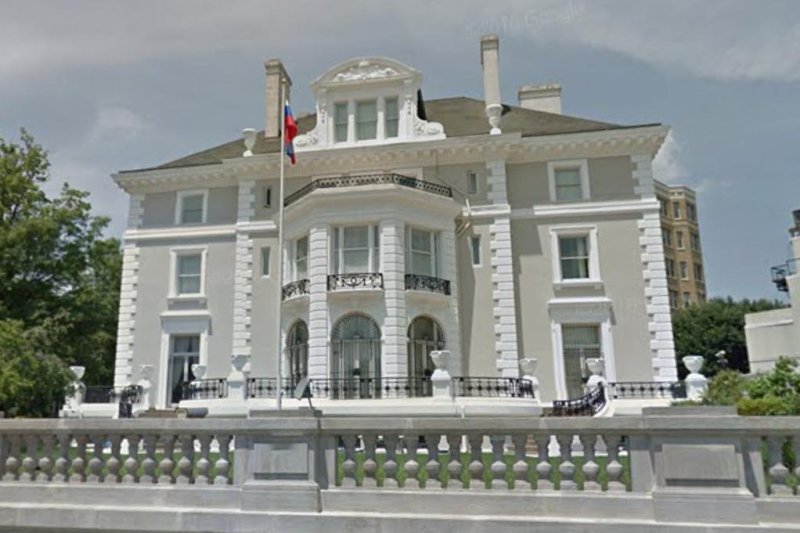The headquarters of the Russian trade mission in Washington, D.C., was ordered closed by the U.S. government on Thursday. Russia said a subsequent search of the premises is "illegal." Image courtesy Google Maps
Sept. 2 (UPI) -- The Kremlin summoned the top U.S. diplomat in Moscow to formally protest Washington's decision to search the Russian trade mission, the latest jab in an ongoing diplomatic tussle.
Russia called the search "illegal" and "an unprecedented aggressive action" by the United States. The Kremlin also said the searches could be used to "orchestrate an anti-Russian provocation by planting compromising items."
For its part, the United States has not said why it is searching the compound, one of three Russian offices in the United States that the Trump administration ordered Russia to vacate earlier this week.
On Friday, smoke could be seen pouring from a chimney at the Russian consulate in San Francisco, another complex ordered to close, and in a parking lot behind the trade mission in Washington, stoking claims the Russians were burning documents in advance of U.S. searches.
Russian officials were coy about what caused the smoke. Staff from the San Francisco consulate told firefighters who responded to the scene the smoke was from a "fireplace" -- despite the fact it was 95 degrees outside.
A Russian foreign ministry spokeswoman said on Facebook the smoke was part of "activities to conserve the building."
The United States ordered Russia to close the three compounds on Thursday after Moscow ordered the United States to reduce the size of its diplomatic mission in Russia. That move was in response to a 2016 directive by former President Barack Obama, expelling 35 Russian diplomats and imposing economic sanctions in response to Russian meddling in the presidential election, charges Russia has denied.
The most recent round in a decades-long diplomatic shoving match between the two countries dates back to 2014, when the United States organized NATO sanctions against Russia for annexing Crimea and instigating hostilities in eastern Ukraine, where violence is still ongoing by Russian-backed separatists.















